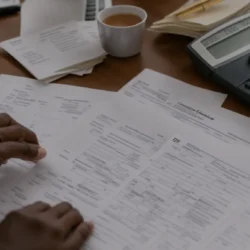Paying medical bills can be expensive, even if you’re insured. When you consider that even an ambulance ride to the hospital can cost you thousands of dollars (and that’s before you’re even admitted!) it’s no wonder so many people in America are looking for ways to improve the healthcare system in different ways. Even if you’re an American who has an emergency fund and health insurance, you may find that you haven’t saved up enough money to cover a major life expense.
Of course, this gets even more serious as you or your loved ones start to get older. You may be diagnosed with a condition that requires costly, regular medication or even needs to have a major surgery such as a hip replacement. In these sorts of situations, it’s easy to start to feel underwater due to mounting medical bills. If you’re looking to gain control over your medical bills, here are three strategies to consider.
Look into getting a viatical settlement for major costs.

Sometimes, in the face of astronomical medical costs, you need to find a way to address them in totality rather than breaking them up into smaller bills that will haunt you for the rest of your life. In some situations, you may actually qualify for a viatical settlement on your life insurance policy. If you have life insurance and have been diagnosed with a terminal illness, viaticals let you cash in on your life settlement now for a lump sum of cash rather than wait until you pass away for your family to get those death benefits and use the amount to pay medical debts after you’ve passed on.
Third-party viatical settlement providers are able to offer you cash value on your life settlement now if you meet a few criteria, so if you have a major cost from a recent diagnosis, it may not be a bad idea to reach out to a broker who deals specifically with insurance companies and viaticals. While the amount of money you’ll get on your life settlement won’t be the cash value of the full policy on its face, viaticals does give you some much-needed cash flow and can often be helpful in the immediate moment rather than your beneficiaries needing to wait for your death benefits to kick in.
See if you qualify for a prescription discount card.

Another consideration to make if you have costly recurring prescriptions is looking into whether or not you qualify for a discount card. Prescription discount cards are easy to qualify for in many cases, and can greatly reduce the drug price you pay at pharmacies like Walmart, CVS, and Walgreens. Think of a prescription discount card as a coupon that is applied to your prescriptions when you show your discount card to the pharmacist and pick up your prescriptions. America’s Pharmacy discount card is one of many prescription discount cards out there, and all it takes is a simple form with some of your personal information for you to apply and get a discount on your prescription medication. You can even download and use America’s Pharmacy app to ensure you always have your America’s Pharmacy discount card with you wherever you go.
Negotiate your medical debts.

If part of your personal finances is hindered because of medical debts, it might make sense to contact your creditors and let them know the lowest price you’re able to pay and talk to them about your situation. Especially if you haven’t been making payments on these debts for a while, it’s likely in the medical provider’s best interest to take some form of payment rather than to continue getting nothing or having to take you to court. If you’re not sure how to negotiate your medical debts, see if you can find an attorney who specializes in consumer debt consolidation to determine what your options might be.




